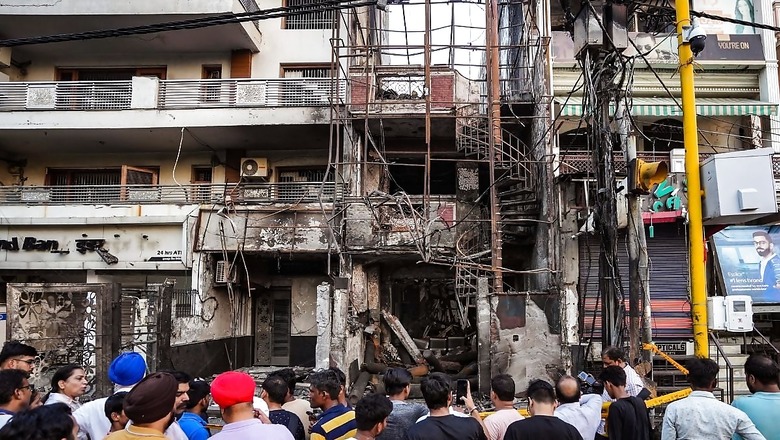
views
A number of fire accidents leading to loss of life and property – most recently the tragedies at a Delhi hospital and gaming zone in Gujarat’s Rajkot – have put the spotlight on safety norms. Despite the frequency of such incidents, eight out of 10 Indians said their homes and workplaces were not compliant to fire safety norms.
According to a survey conducted by social media platform LocalCircles, only 18 percent respondents said the fire safety equipment at their residential area undergoes annual inspection. When it comes to workplaces, just 27 percent said the firefighting equipment is checked annually.
Earlier on Sunday, a children’s hospital in Delhi’s Vivek Vihar caught fire leaving seven newborns dead and several injured. The night before on Saturday (May 25), a fire at a gaming zone in Rajkot left 27 dead, including 10 children.
Such incidents have become frequent with fires at residential societies; commercial buildings like hospitals, shopping complexes and malls; coaching institutes, offices and factories; as well as old buildings.
In most of these incidents, it was found that these establishments ignored fire safety compliance. In fact, many establishments and residential societies simply avoid fire certification due to the long-drawn or even corrupt processes.
A survey was conducted to understand fire safety compliance at residential areas and workplaces. In response to questions related to fire safety compliance at homes, which involves access to a working fire extinguisher or a sprinkler system, only 18 percent respondents said these are checked every year.
The rest said fire safety is a much-neglected aspect in residential apartments or accommodation, by both citizens and authorities. At least 19 percent respondents said they do not know if their fire extinguishing systems work while 27 percent admitted that they have never complied with fire safety norms. Only a meagre 3 percent said they have easy access to a fire extinguisher while 21 percent said they have never given this a thought in the first place.
Fire safety operations in urban areas are under civic bodies. Not only is fire responsiveness slow, but when people call for help for certification and audits, they are faced with inefficiency and corruption. In many cases, only bribes work and, as a result, home owners or even residential societies skip certification unless called upon to do so by the authorities.
Asked about fire safety compliance at workplaces and commercial establishments, only 27 percent respondents were confident that safety equipment undergoes annual checks while 11 percent said they have easy access to a fire extinguisher.
At least 14 percent admitted they did not know if the fire equipment works, while 20 percent said they have never thought about this. Feedback from business owners shows that most commercial establishments – be it a restaurant, hospital, factory or a store – have to get fire certification but, in most cases, end up hiring a middleman or agent for facilitation or end up paying bribes.
In such cases, officials often overlook gaps and shortcomings and provide licence and certification even when there is no compliance. Hence, the survey shows that only 18 percent people live in a house or apartment that follows fire safety norms and just 27 percent go to a workplace where there is compliance.
The need of the hour is for the government to initiate a fire safety mission, where facilities are made compliant to safety norms. This can happen by funding fire departments in urban local bodies to ensure they have a strong response team as well as an efficient governance model with mandatory certification for every building. This should also include training programmes for those who reside or work in these buildings.
Explore in-depth coverage of Lok Sabha Election 2024 Schedule, Voter Turnout, Upcoming Phase And Much More At News18 Website

















Comments
0 comment